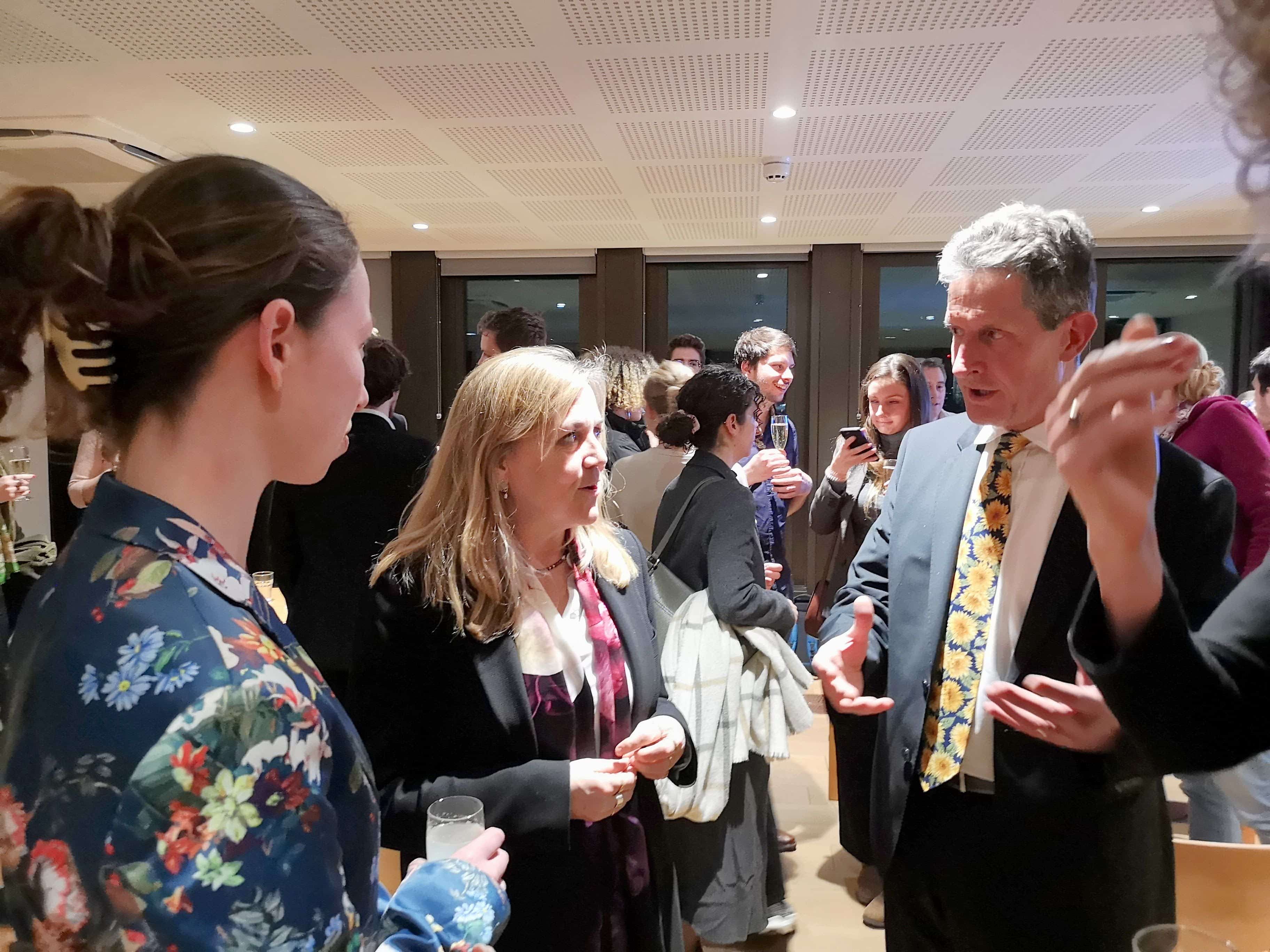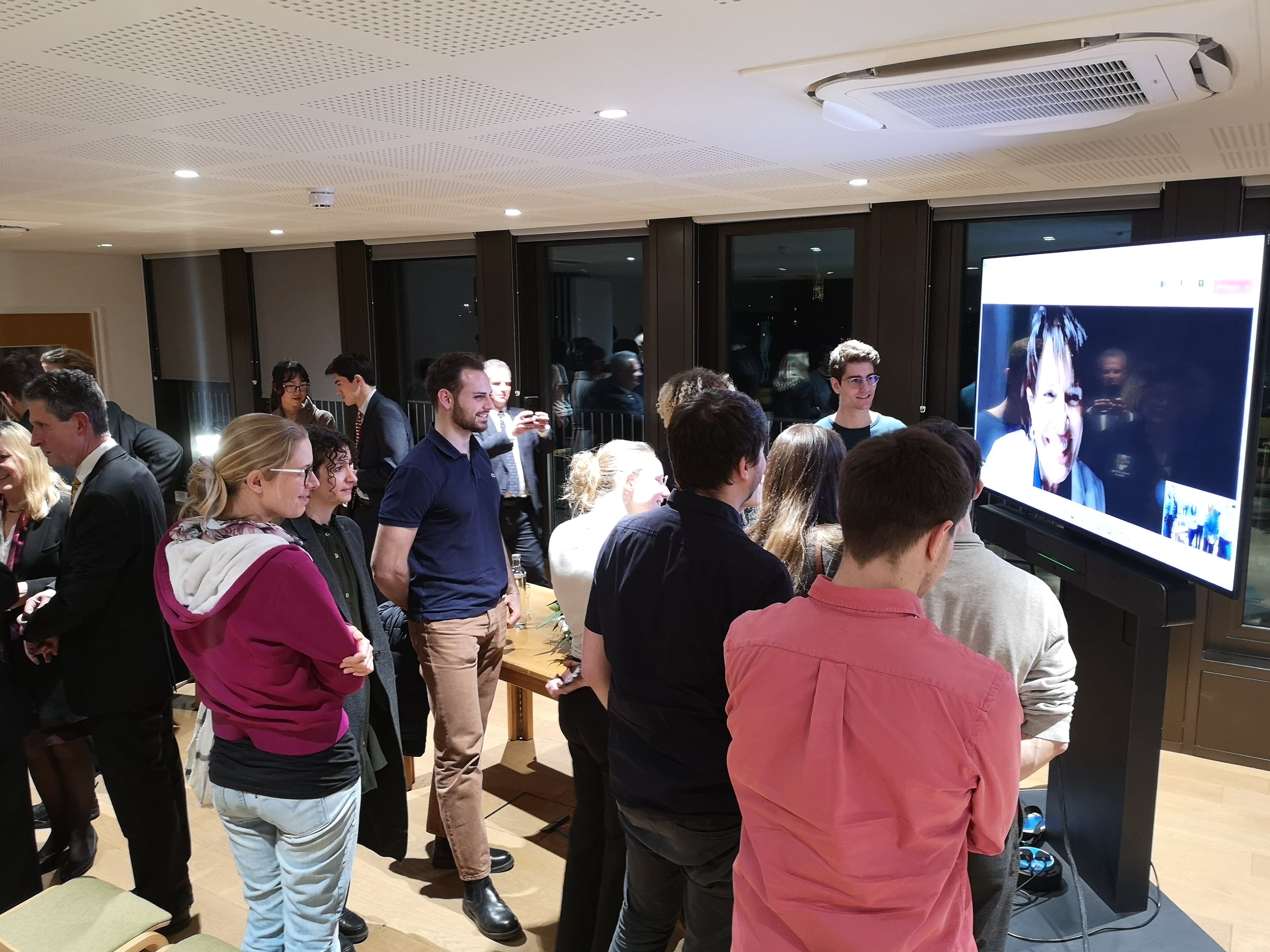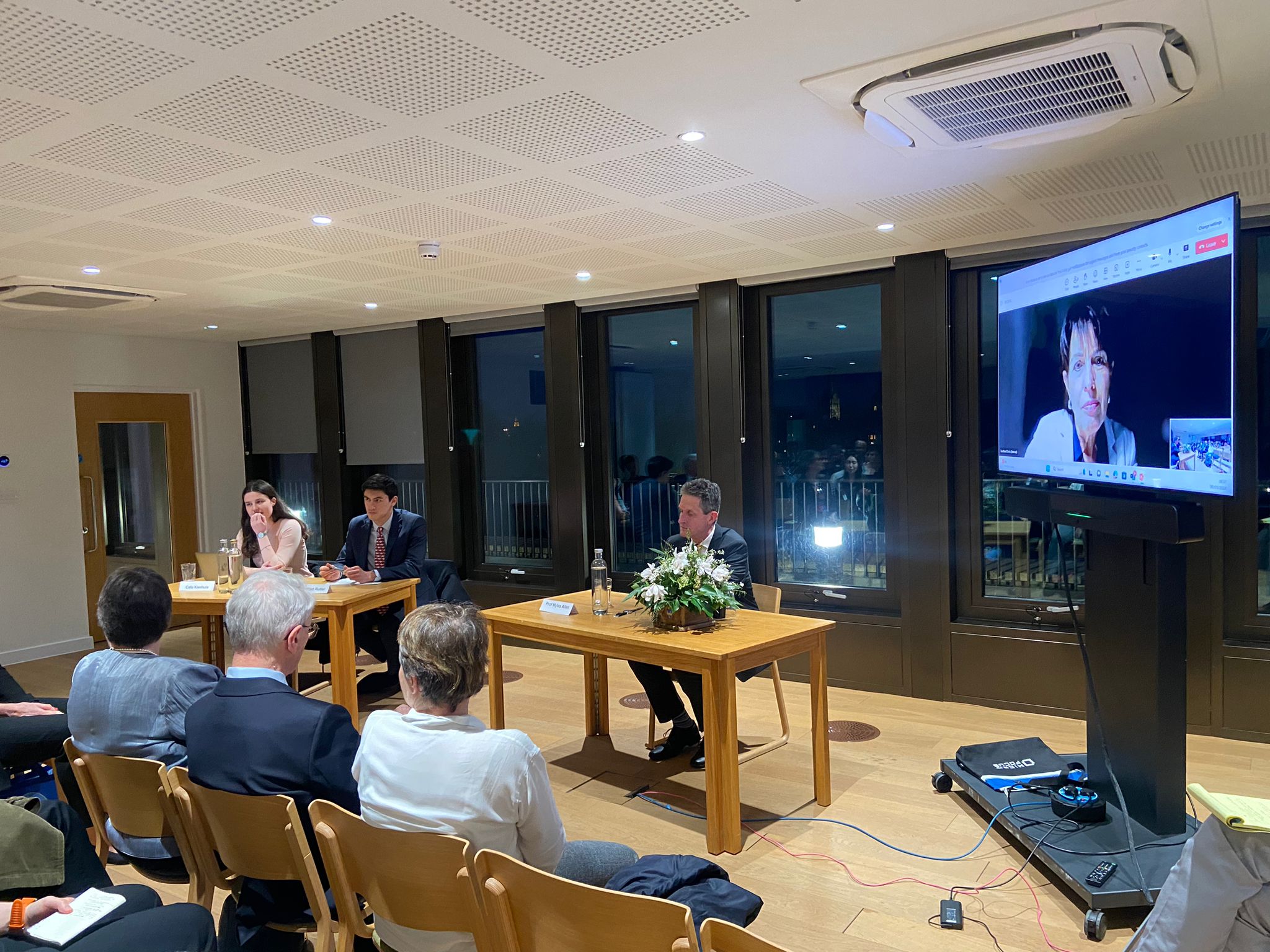
On Wednesday, March 6th, St Hilda’s College hosted the annual 'Green Feast' and Seminar. This event not only seeks to spotlight environmental and sustainability concerns but also to celebrate and acknowledge the efforts of local food producers in Oxfordshire.
The evening's proceedings kicked off with a captivating panel discussion featuring distinguished speakers, Doris Leuthard and Myles Allen. Doris Leuthard, a seasoned Swiss politician and lawyer, served as a Member of the Swiss Federal Council from 2006 to 2018, holding key roles in the Federal Department of Economic Affairs and later in the Federal Department of Environment, Transport, Energy, and Communications.
Myles Allen, Professor of Geosystem Science at the University of Oxford, brought his wealth of experience, having served on the UN Intergovernmental Panel on Climate Change (IPCC) and as a Coordinating Lead Author for its special report on 'the impacts of global warming of 1.5°C above pre-industrial levels.'
The panel discussion, deftly chaired by Cato Kienhuis, the St Hilda’s JCR Environment and Ethics officer, and Jonathan Rutter, the MCR president, attracted an audience that spanned students, fellows, and esteemed guests, including representatives from the Swiss society in Oxford, a dignitary from the House of Lords, and the Swiss deputy ambassador in London.
Doris Leuthard began her introduction with heartfelt gratitude for the opportunity to delve into the multifaceted topic of climate change. Despite a slight hiccup in her travel plans, she expressed her delight at participating in such a crucial conversation. Drawing on her involvement in the Paris Agreement in 2015, Doris underscored its significance as an international benchmark for political actions in adaptation and mitigation. Urging for immediate global action, she navigated through the scenarios outlined in the Paris Agreement, which initially targeted a maximum temperature increase of two degrees Celsius but later embraced the more ambitious goal of 1.5 degrees Celsius.
While highlighting the substantial impact of climate change on vulnerable communities, even at the 1.5-degree mark, Doris pointed out a concerning gap between scientific findings and political measures. She expressed unease regarding the insufficient global response, especially in light of the challenges faced in achieving agreed-upon temperature targets. Notably, the most recent Conference of the Parties (COP) lacked clear objectives concerning the phasing out of fossil energy.
Doris emphasised the risks linked to climate change, encompassing the loss of species, health implications, and challenges in food production. While acknowledging the role of science in modelling these outcomes, she reminded the audience that political decisions should consider ethical factors, economic costs, and uncertainties.
The concept of net zero was explored in-depth, underscoring the necessity for substantial investments in clean technologies. Doris emphasised that wealthier nations, historically responsible for carbon emissions, must play a pivotal role. She also shed light on the challenges posed by geoengineering and stressed the importance of lifestyle changes, specifically addressing the immediate needs of the transportation and energy sectors.
In the concluding segment of her remarks, Doris called for a comprehensive approach, urging concerted efforts to address adaptation, implementation, and finance related to climate change.
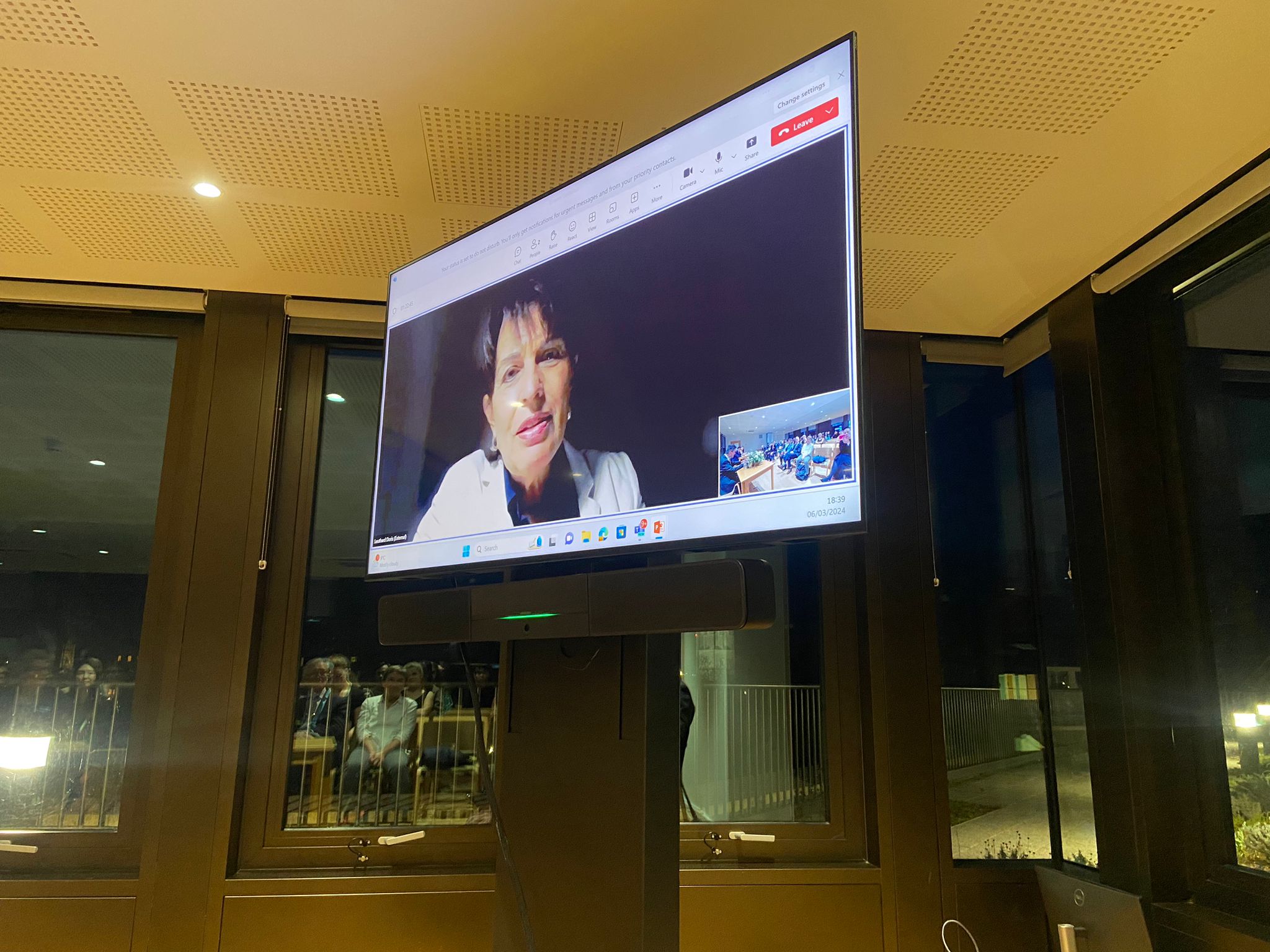
Myles Allen took the stage next, commencing his opening remarks with a focus on a specific concern arising from COP28. He highlighted the imperative need for industrial carbon dioxide disposal as a critical solution to climate change. He underscored the inadequacy of investment in this area, attributing it to societal reluctance and negative perceptions surrounding carbon capture and storage technologies. Unlike other renewable energy investments that might yield profits for companies, carbon capture is woefully underdeveloped as a solution to climate change.
Myles stressed the urgency of achieving geological net zero, emphasising the need to balance carbon dioxide production from fossil fuels with its restoration to geological sinks. He underscored the requirement for massive industrial-scale carbon dioxide disposal, asserting that existing technologies for reducing fossil fuel use were insufficient.
In a thought-provoking conclusion, Myles shared concerns about Oxford University's commitment to achieving net zero by 2035. He raised questions about the unavoidable emissions associated with international travel and challenged the feasibility of achieving net zero without more concerted efforts, including the adoption of industrial carbon dioxide disposal technologies. He even proposed the possibility of drilling for carbon capture and storage in locations like Lincolnshire, stating that carbon capture and storage should be done as close to the source of emission as possible rather than shifting the problem to another country.
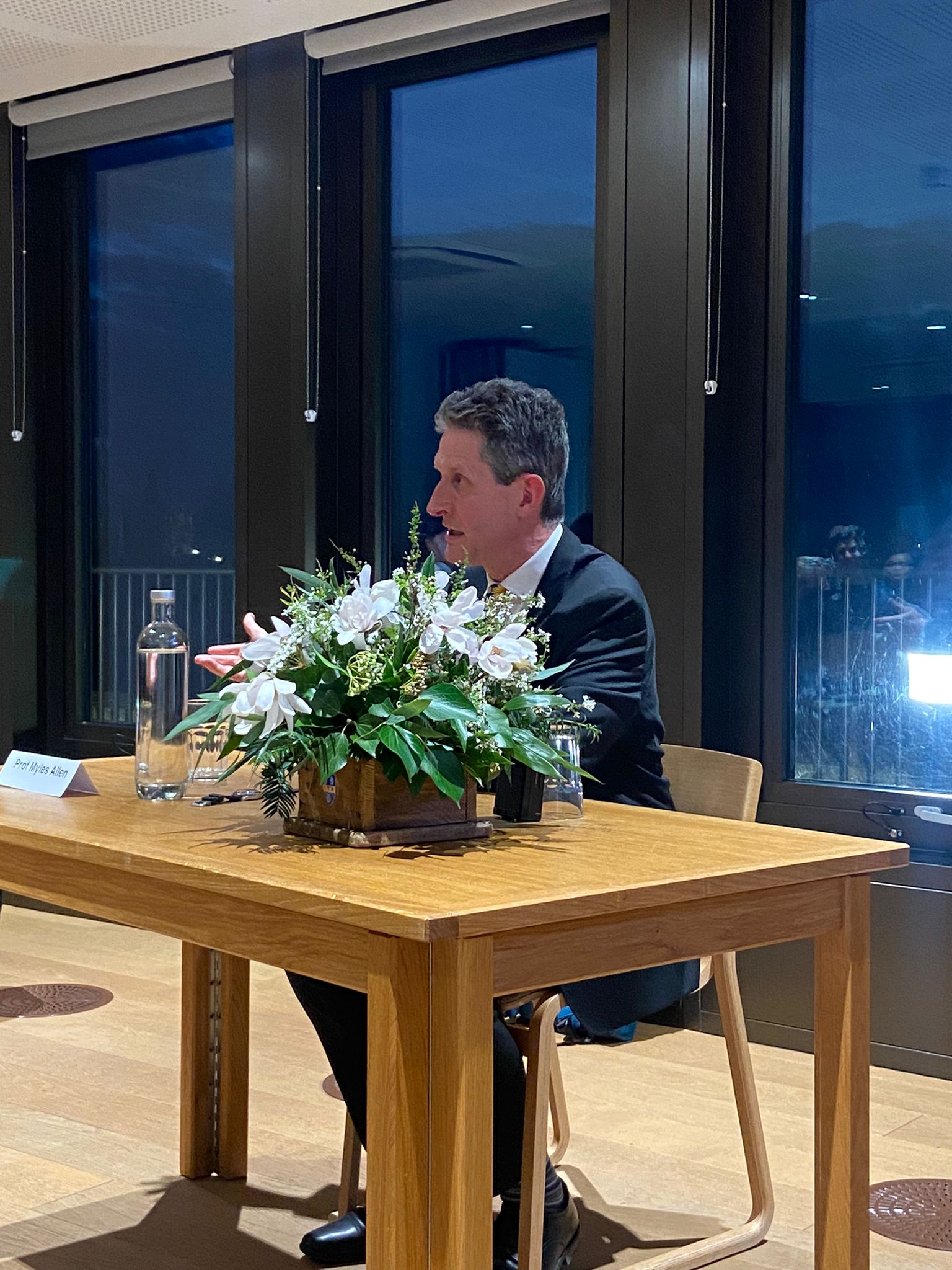
The seminar concluded on a high note with a reception, and a chance to informally discuss ideas, paving the way for the Green Feast.
